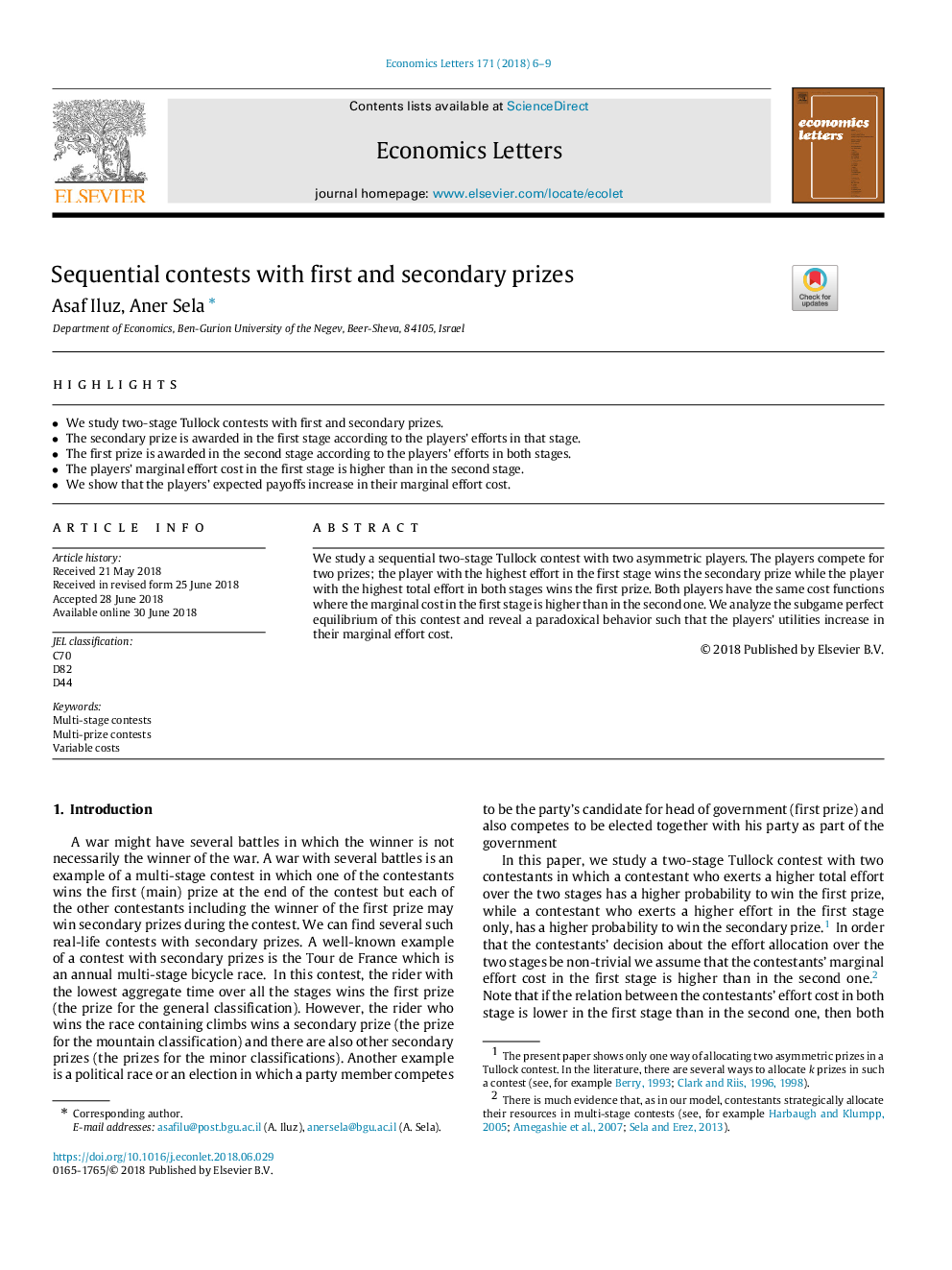| Article ID | Journal | Published Year | Pages | File Type |
|---|---|---|---|---|
| 7348390 | Economics Letters | 2018 | 4 Pages |
Abstract
We study a sequential two-stage Tullock contest with two asymmetric players. The players compete for two prizes; the player with the highest effort in the first stage wins the secondary prize while the player with the highest total effort in both stages wins the first prize. Both players have the same cost functions where the marginal cost in the first stage is higher than in the second one. We analyze the subgame perfect equilibrium of this contest and reveal a paradoxical behavior such that the players' utilities increase in their marginal effort cost.
Keywords
Related Topics
Social Sciences and Humanities
Economics, Econometrics and Finance
Economics and Econometrics
Authors
Asaf Iluz, Aner Sela,
